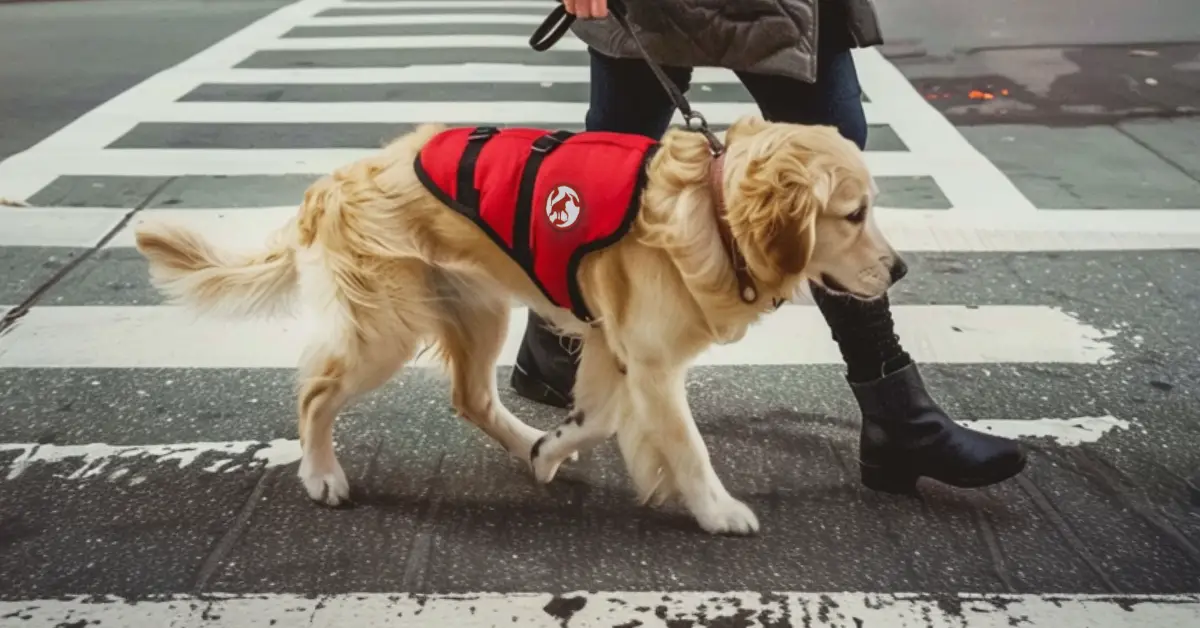Can a Landlord Charge a Pet Fee or Security Deposit for a Service Animal?

The Federal Fair Housing Act prohibits landlords from discriminating based on disability. Housing providers can never charge a fee or deposit just because a tenant needs a service dog.
Seeking a Home with a Service Animal
Imagine the following scenario: A tenant is accepted in a rental building and discloses that she has a service dog: a trained Golden Retriever that monitors her for impending seizures. In compliance with their federal Fair Housing obligations, the landlord agrees to accommodate the service dog even though the building prohibits all dogs over 12 pounds.
However, the landlord says he will have to charge a pet security deposit. In addition, the building charges a monthly pet fee, but the landlord says he will give the tenant a 20% discount. Lastly, the landlord charges an application fee for considering the tenant’s request to live with their service dog.
Were the landlord’s actions in compliance with HUD’s rules for service dogs? Let’s assess this situation with the following four questions.
1. What Does the Federal Fair Housing Act Say?
Do the pet fee and pet security deposit requested by the landlord, even at a discounted rate, violate the Federal Fair Housing Act?
According to the Federal Fair Housing Act, a landlord discriminates against a person with a disability if the landlord refuses to provide “reasonable accommodation” for their service animal without a valid exemption. Service dogs are not considered pets under HUD’s rules, but rather assistance animals needed by people with physical or mental health disabilities. Service dogs that are used for mental health conditions are known as psychiatric service dogs.
Under HUD’s guidelines, landlords can never charge a fee or deposit for a tenant’s service animal. That is true even if the building charges a fee or deposit for all pets. Landlords cannot offer a discounted rate for waiving any pet fee, or charge an application fee for considering the service dog.
The idea behind this rule is that it would be unfair and discriminatory to charge a person a fee or deposit just because they have a disability requiring a service animal. To charge an additional fee for the service animal would be like charging an individual for using a cane or a wheelchair — the service dog is a vital tool to the owner to overcome the challenges of their disability.
Charging a pet security fee or a pet deposit for a service animal is unethical and illegal.
Service Dog Certifications
2. How Does a Service Animal Relate to a Person’s Disability?
Service dogs are used by people with both physical and mental health disabilities. To have an official service dog, an individual must have a qualifying disability and a fully trained dog that can perform one or more tasks or jobs related to their condition.
There are countless vital tasks that service animals perform for their owners. For example, a service dog can be trained to pull a wheelchair or provide guidance for someone with visual impairments. A psychiatric service dog can be trained to retrieve medications, provide calming tactile stimulation during moments of crisis or interrupt panic episodes.
3. Who Pays for Damages?
Does this mean that a person with a disability would never need to pay for damages caused by their service animal? No, service dog owners are always responsible for the actions of their animals. No matter how well-trained a service animal is, they’re still animals. Accidents can happen. If the rental property sustains damage (aside from usual wear and tear) from a service animal, the service dog owner would be held responsible. If the tenant had deposited a standard security deposit under their lease, the landlord might collect for damages from that amount.
It’s always essential, in any residence, for service animal owners to respect the property and the rights of others around them.
Service Dog Certifications
4. How do you prove that you own a service dog?
If you own a service dog, the landlord can ask two questions for verification:
- Is the dog a service dog required because of a disability?
- What work or task has the dog been trained to perform?
Landlords cannot insist on documentation for service dogs. However, you may have seen service dog owners carry items like ID cards, vests, certificates, and tags. These items are used by service dog owners to publicly signal that their animal is a working service animal. Still, this paraphernalia does not by itself elevate a dog to service animal status.
Service dog equipment can be especially helpful in buildings that ban pets since other residents will be curious about why your service dog has been allowed on the premises. Having items that clearly indicate your dog is a service dog can alleviate any potential confusion and tension with other residents.
About the Author: The writing team at Service Dog Certifications is made up of folks who really know their stuff when it comes to disability laws and assistance animals. Many of our writers and editors have service dogs themselves and share insights from their own experiences. All of us have a passion for disability rights and animals.
Related Articles

What Should You Do If You Are Discriminated Against Because You Have A Service Dog?
If you believe that you have been discriminated against because of your service dog, you will need to present facts in order to file a complaint. You should be able to do that by documenting what happened. Writing everything down will help because you won’t be able to remember all the details when you do get […]

Read More

Emotional Support Animal Laws
If you live in any state in the U.S. the Fair Housing Act is a federal law (meaning it applies across the country) that guards your rights as the owner of an emotional support animal. Your state might even have its own laws for extra protection. This guide will explain current laws and how they […]

Read More

Service Dog Requirements
The ADA defines a Service Animal as a dog individually trained to perform tasks or do work for the benefit of a person with a disability. A disability can be a physical impairment, but the ADA also includes mental illnesses that substantially limit one or more major life activities, such as depression, severe anxiety, or […]

Read More


